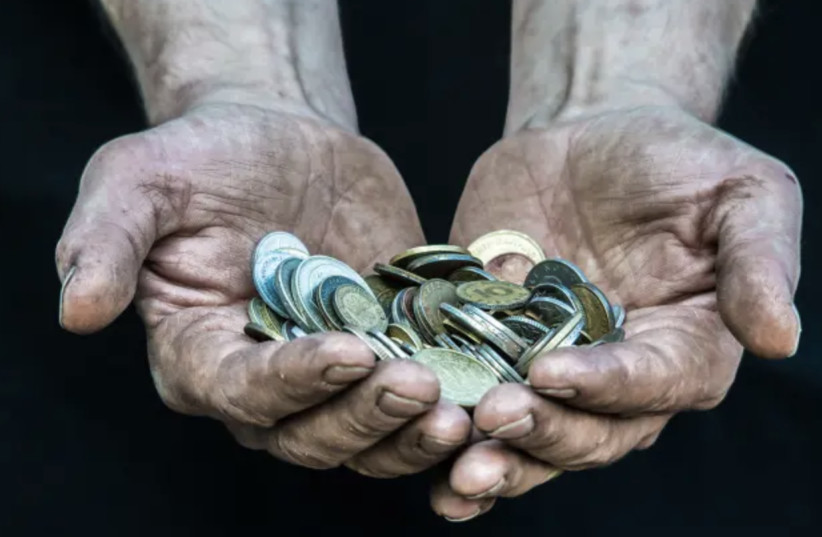The struggle to make ends meet is heightened in underserved communities. The rise in the cost of goods, be it the price of eggs, gas at the pump, or health insurance, strikes hardest at those with limited means. Inflation, the lingering pandemic, and natural disasters – including fires and floods across California – have only amplified the need for relief. Yet people of color, women, or immigrants often struggle to secure capital and resources, as they are systematically shut out from traditional financing.
At the Jewish Community Federation and Endowment Fund, we are determined to build economic equity and inclusion for perennially underserved individuals, small business owners and nonprofits. With over $2 billion in assets, we are known for our philanthropic generosity.
After the COVID-19 pandemic devastated communities across the country, we launched a new and targeted way to deploy funds: impact lending. These low-interest loans are made to financial institutions that close funding gaps in under-resourced communities. By providing fair and affordable credit, they bring low-rate loan capital to financial deserts in which only inflexible predatory lending exists.
The method is simple: The Federation pools money from donor-advised Funds and supporting foundations and moves it into loans that generate a nominal return (unlike grants, which are a one-time donation). That return, along with the original loan capital is eventually repaid by the recipient organization. The donor can then redistribute that money for other charitable giving.
Although loans are considered investments, the goal is not to maximize financial return. The goal is to enable significant philanthropic capital to do good – while it’s waiting to be granted out. These loans provide an infusion of funds into communities that need it most.

In the past few years, the Federation has invested more than $39 million (NIS 135 m.) with 19 different mission-oriented financial groups. Core issues range from the environment to education, economic equity to nonprofit financing, housing scarcity to job training and more. The results are life-changing.
<br>when traditional services fall short
Gal, a divorced, single mother of three, owns and runs Gal Kaspers Pilates Studio in Herzliya, which serves more than 400 local clients. She wanted to expand her business into a second location, so she turned to her bank for capital to rent and furnish her new studio. Even though Gal’s business was growing, profitable and had never recorded an annual loss, Gal was denied due to her temporary income reduction during the pandemic.
That’s when Ogen, formerly known as the Israel Free Loan Association, demonstrated its commitment to small business growth and vitality by giving Gal a loan of $45,000. As a nonprofit social enterprise that provides credit to underserved segments of Israeli society, Ogen offers interest-free and low-interest loans and aims to increase upward economic mobility for low – and middle-income families and small business owners.
The Federation partnered with Ogen because small businesses account for 93% of all companies in Israel and employ over 40% of its total pre-pandemic workforce, yet they struggle to obtain affordable credit. Ogen offers a platform for economic growth and empowerment that can help close Israel’s socioeconomic gaps by making affordable credit available and accessible at scale to those who need it.
<br>Building sustainable farms
Anna’s Organic Farms in Chowchilla, California, has grown from 5 acres to 60 acres within the last decade. Anna Maria Villanueva, whose father grew up on farms in Mexico, wants the business to stay in the family for generations to come. So, when an old delivery truck proved unreliable, the Villanuevas sought a loan from Federation’s partner California FarmLink.
The impact was immediate. A new modern truck has allowed them to deliver goods to distant markets. They are now looking to sell at farmers markets in San Francisco and deliver to wholesalers in Watsonville.
The Federation invested in California FarmLink because it directly helps farmers of color, women and members of other groups that have been historically denied equal access to land, capital and education. The loans bolster sustainable farming, living-wage jobsand a healthy environment.
The examples are numerous. Whether it’s a Jewish music school owner in the Bay Area needing support to weather the pandemic, a Black business owner in Oakland seeking to expand his coworking social enterprise and event space company or small business owners and nonprofit organizations in Israel, these individuals and their businesses have been given a second chance through impact lending.
Looking ahead
As Jews, we are obligated to perform acts of lovingkindness; at the Federation, it’s the heart and soul of our work. Our core value, tzedakah (charity), is seen as a moral obligation to care for the needy or poor through charitable giving. We do that through grantmaking but we also perform other mitzvot in service to society. Impact lending adds another facet to our work, combining compassion and community outreach for change.
Moving forward, we envision the magnitude of our impact lending matching our aspiration to fulfill our Jewish values to help more people in need. Our goal is to attract people of all ages and backgrounds to partner with us in this venture. And for good reason: By funding access to affordable credit for populations that have rarely built generational wealth, our members are promoting social justice and shared prosperity.
This is tikkun olam (repairing the world) in action with collective strength, understanding and abundance.
The writer is the director of impact investing at the Jewish Community Federation and Endowment Fund.
